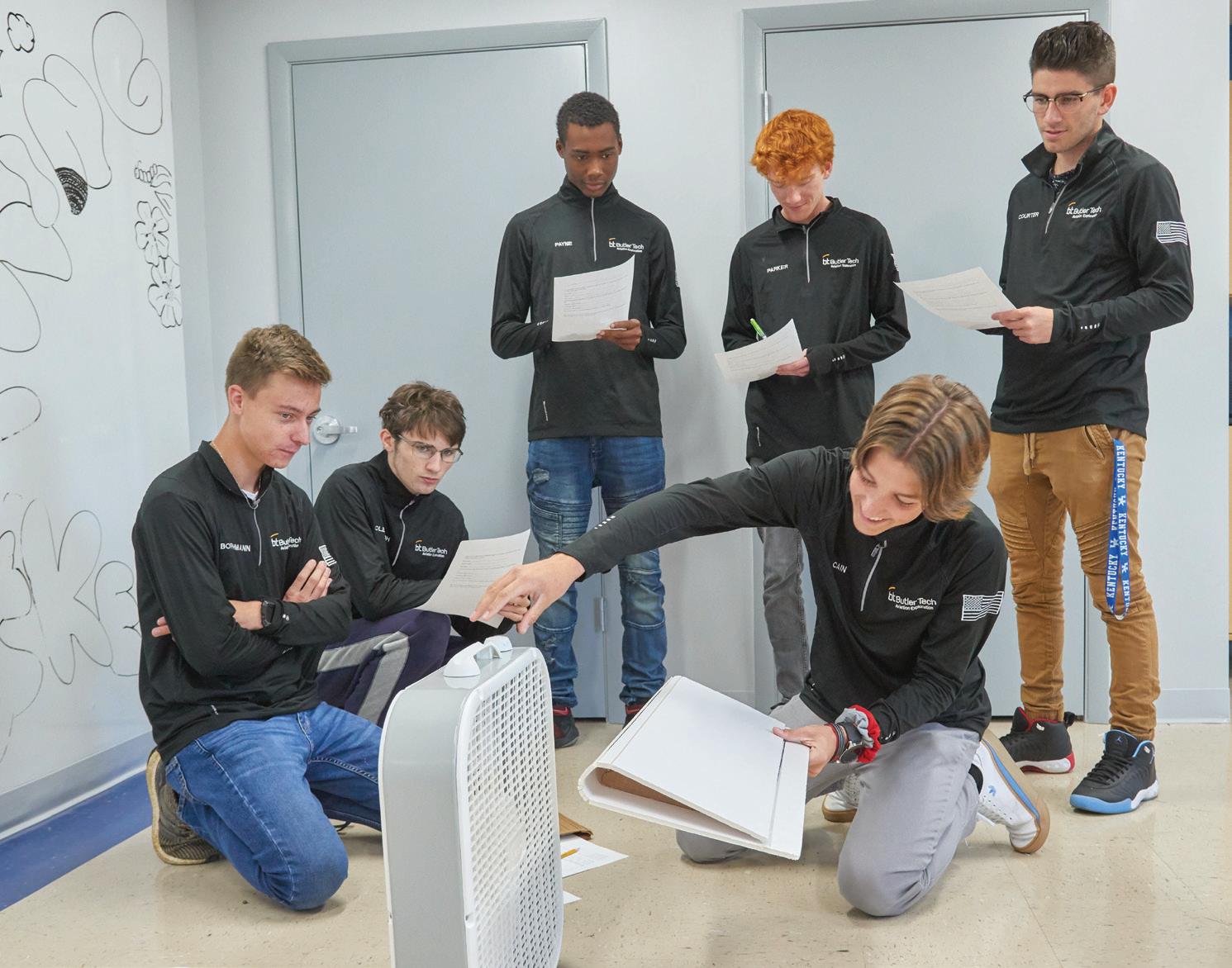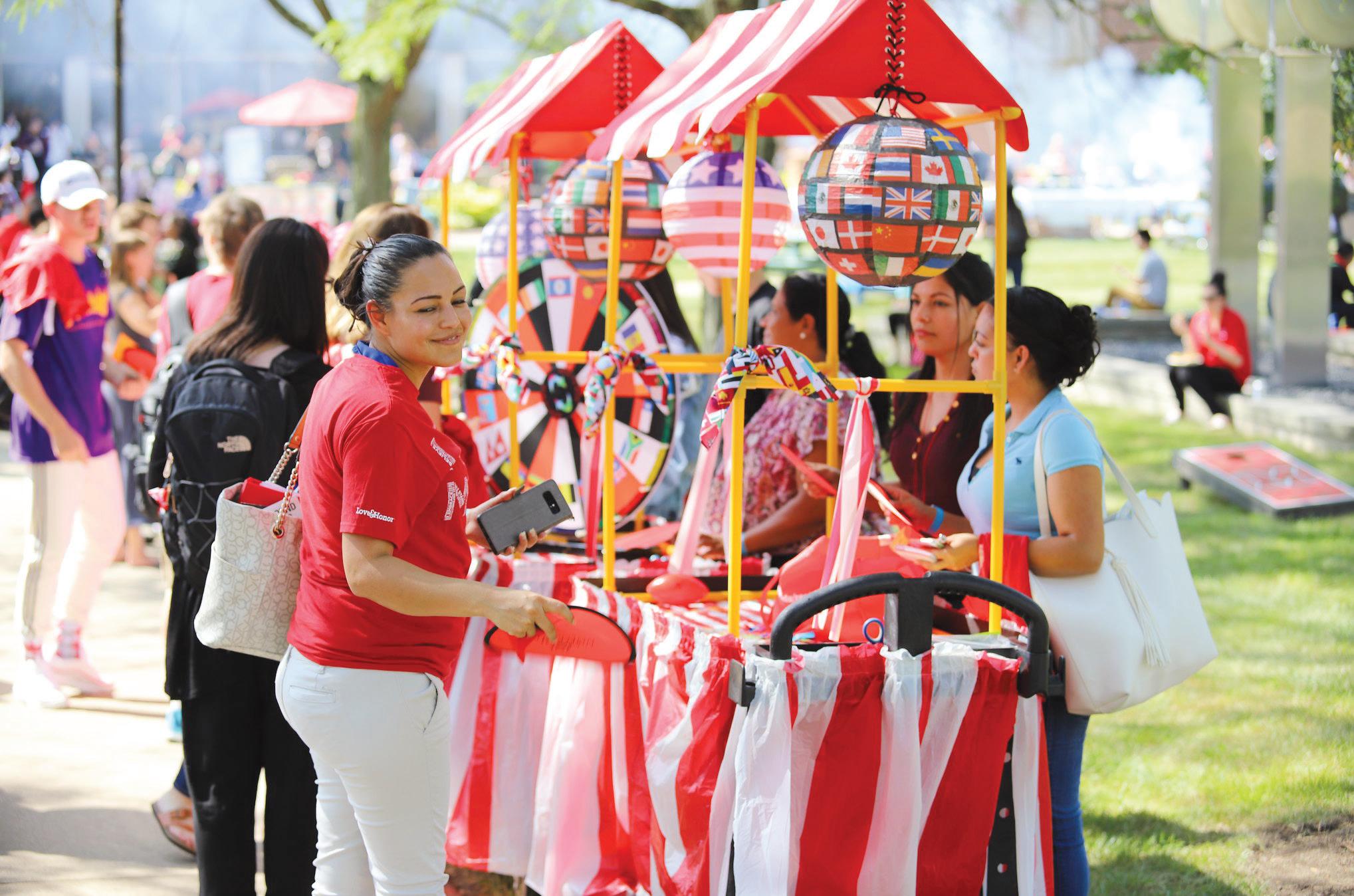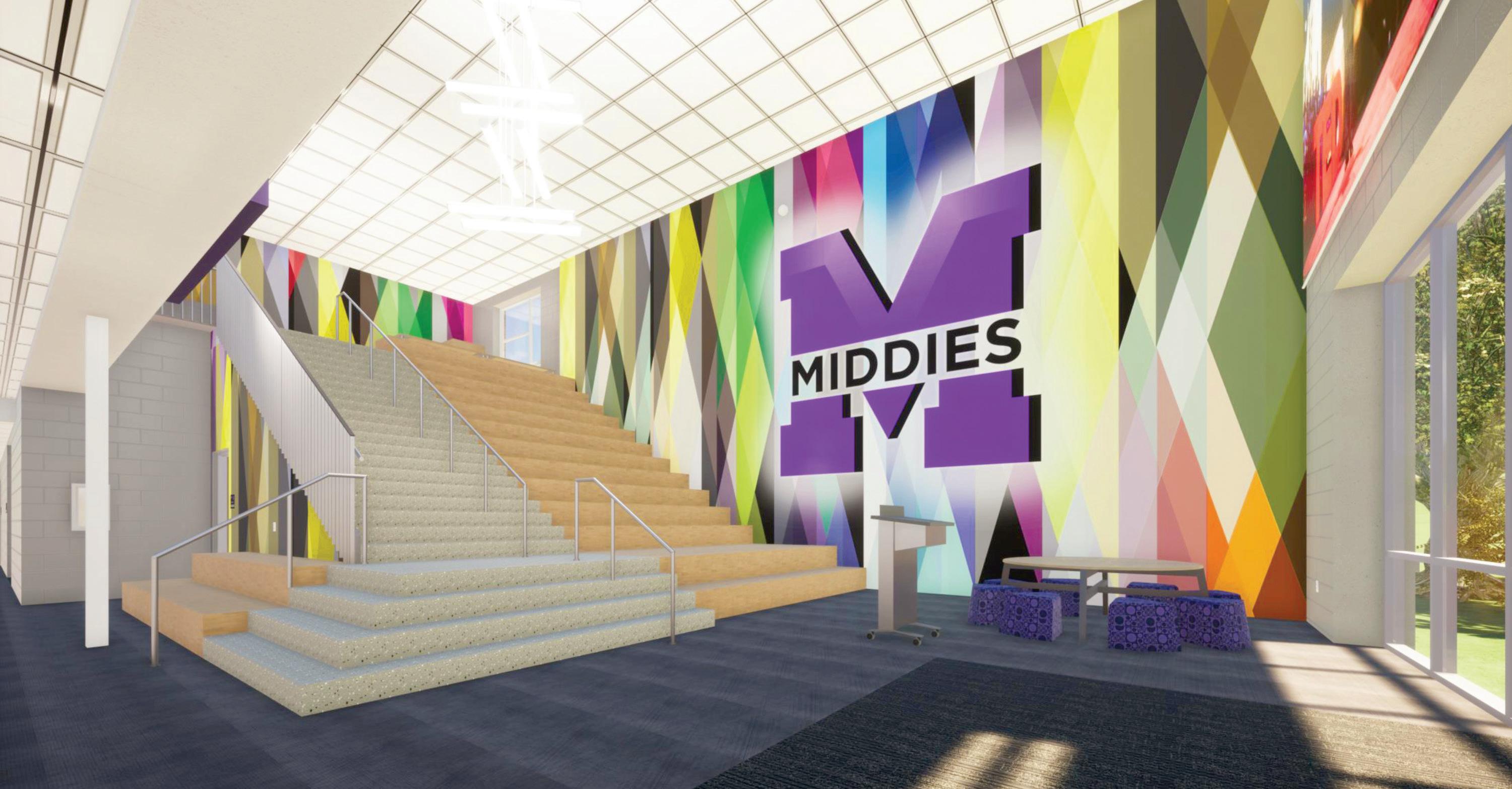
7 minute read
Education
Something SPECIAL
Middletown’s education offerings include programs that you can’t find anywhere else
Advertisement
There’s nothing ordinary about education in Middletown. In fact, high school students and those seeking a college degree have access to programs in Middletown that can’t be found anywhere else in the country.
BUTLER TECH Butler Tech, a career technical school in Butler County, serves both adults and high school students with a variety of programs. Adults can earn industry-recognized certifications in areas like health care and public safety and high school students from 11 area schools—including Middletown High School—can receive career education while completing their high school degree or take College Credit Plus courses.
Butler Tech’s newest career education track for high school students is one of the first of its kind in the country. Called the Aviation Exploration Pathway, the program teaches juniors and seniors about aviation theory, navigation and management, principles of meteorology forecasting, aircraft ground safety procedures and aviation maintenance.
“One of the things that we try to do with Butler Tech programming is not only
Students in the Butler Tech Aviation Exploration Pathway program at Middletown Regional Airport have opportunities to work with real airplanes.
look at what’s in demand right now but also try to look out and see, in a couple of years, what are the in-demand jobs going to be because essentially we’re trying to train for the future,” says A.J. Huff, public relations coordinator for Butler Tech. With the proximity of the Wright-Patterson Air Force Base, Middletown Regional Airport and other businesses related to the aviation industry, Butler Tech saw that jobs like airplane mechanics, engineers and drone pilots would soon be in demand.
“Superintendent John Graft was with someone in the [aviation] industry and they said, ‘We have a hair problem… Everybody that does this job either has no hair or gray hair,’” says Huff. “So we really need to get some young blood in there.”
The program, started in fall 2019, takes just 25 students each year. Students spend half their day at Butler Tech’s Fairfield campus taking classes needed for their high school degree and the other half getting real hands-on education at the Middletown Regional Airport.
Huff says that the airport has proven to be the perfect location for the program.
“You have not only the hangar there, which it’s amazing that the kids can go out and actually be around the planes, but there is some classroom space as well,” she says. Students can thus spend time in a traditional classroom for lectures, work in the hangar to get some handson experience and use a comfortable study space ideal for group work and collaboration.
In addition to working with real planes, students have the opportunity to work with drones. In fact, all students become FAAlicensed drone pilots by the end of their junior year.
“A lot of current students are making money doing that! A couple of them have side businesses where they’re flying for Realtors or doing festivals and things where they’re getting some aerial shots for certain organizations,” says Huff.
To join the program, students must apply during their sophomore year. A high GPA is not a requirement, but students do have to go through an interview process.
By utilizing space at the Middletown Regional Airport, Butler Tech’s Aviation Exploration Pathway students can learn everything from the science of flying to airplane maintenance.

“In the interview process what we look for is passion and that sense of purpose and their desire to go into whatever field that they’re applying for,” says Huff.
The program has already proven to be popular—almost 800 were turned away last year because only 25 students can enter the program at a time.
And Butler Tech has plans to make the program even better next year. The school recently purchased its own airplane for students to work on.
“That will definitely ramp things up for next year because they’re actually going to have their own plane that they can really get in there, not just point to the pieces and do different things but literally take it apart, look at all of the pieces and troubleshoot different things. They’ll actually take that hands-on [aspect] to a whole different level having a true plane to work with,” says Huff. They’re also offering opportunities that students can’t find on the Oxford campus.
Students who are enrolled full-time with Miami University Regionals (which requires a minimum of 12 credit hours) and agree to work approximately 24 hours a week at participating businesses will have their tuition covered in addition to being paid by their employer.
MIAMI UNIVERSITY REGIONALS Miami University is more than its main campus in Oxford, with two regional campuses in Middletown and Hamilton and the Voice of America Learning Center in West Chester. Together, those additional locations are called Miami University Regionals and they’re designed to provide a quality college education close to home.

“If they can make it work, and we’ve got maybe 30 of them that are making it work right now, they graduate with no debt, zero debt, which is pretty sweet,” says Perry Richardson, senior director of Media & Community Relations for Miami University Regionals.
Called Work+, the program was first developed by Ohio Sen. Bill Coley, who reached out to see if Miami would be interested. His hope was to not only have students graduate without debt but to also connect area employers with skilled workers. Only in its first year, the program’s participating companies include thyssenkrupp Bilstein of America in Hamilton, Deceuninck in Monroe, The Fischer Group in Fairfield and the Butler County Regional Transit Authority in Hamilton. However, Richardson says that Miami is already working with several other companies to get them involved, too.
To join the program, the student must be enrolled at Miami University Regionals (not Miami University in Oxford) and must interview with a participating company.
“In other words, if the company doesn’t think that this particular student is a
A rendering of the expanded Rosa Parks Elementary. The project is projected to be completed in August 2021.

good fit then they won’t hire them,” says Richardson. “So they have to pass muster with the employers, but they’ve been doing that.”
But even students who don’t participate in Work+ can find much to like about Miami University Regionals. Students can choose from among 18 bachelor’s degrees and the tuition is roughly one-third of what it is on the Oxford campus. Students can take classes in person on a regional campus, online or both.
“You can start and finish without ever having to go to Oxford. Because most of our students are local, they’re not looking for the quintessential residential experience that Oxford provides. They’re looking for the degree or the diploma,” says Richardson. “We meet people where they are, they don’t come to where we are.”
In the coming years, Miami is also looking to transfer its entire engineering technology department for the regional campuses to Middletown, making what Richardson calls an innovation hub.
MIDDLETOWN CITY SCHOOLS Over the last few years, Middletown City Schools has also been working on providing more for its students.
Its biggest and most noticeable project, the $10 million expansion of Rosa Parks Elementary School, promises to do more than add additional space for students. It will also start the implementation of challenge-based learning in Middletown City Schools.
“It’s like project-based learning but it’s a little more robust,” says Elizabeth Beadle, communications specialist for Middletown City Schools. In this type of learning, students take a hands-on role in solving a problem. Once students are introduced to a topic, they have to identify a problem and work to develop a solution. For example, during the pilot program, eighth grade Middletown students developed a tool to assist those with disabilities throw a softball during the Special Olympics.
“Rosa Parks [is] going to be our first elementary to completely embrace challenge-based learning,” says Beadle. “Once we feel that the Rosa Parks staff has really embraced that model, we would then scale it out to our other elementary schools.”
The school broke ground in March and anticipates finishing and opening the expansion in August 2021. With the expansion the school will have 13 additional classrooms and its current learning spaces will be updated. The expansion will reduce the average elementary class size in the school district, giving students more individualized attention as well as a new way to learn.
Middletown City Schools is also providing more for its students by creating new clubs and classes. New at the end of the 2019- 20 school year, Middletown’s esports club allows students to learn about and compete in the fast-growing world of electronic sports (sports competitions that use video games). According to Forbes Magazine, global esports revenue surpassed $1 billion in 2019 and that number is expected to continue to grow.
Miami University, which is heavily involved with esports and has the 11th best game design program in the country, has partnered with the school district to help students learn more about this growing field.
The school district hopes to grow the club so that there is a varsity team. The district would also like to have a class on the subject that students could use to earn college credit and teaches them how they can help develop these games. n









